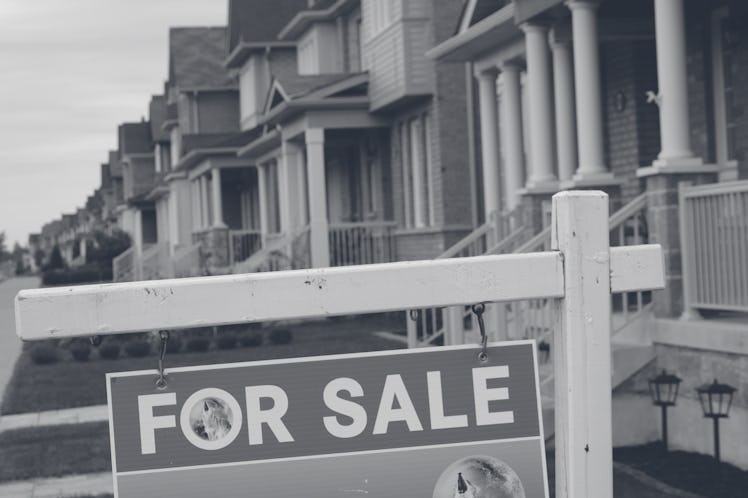It's Cheaper To Rent A Home Than Buy One In Most Big Cities Now
In 38 out of 50 largest cities in the U.S., renting is cheaper than buying.

Between inflation rates and a strange shift in housing market demands over the pandemic, the home-buying market might feel wonkier than ever. But those considering dipping their feet into buying a new home might want to stay put if they’re in a big city — at least according to a new report that claims it’s actually cheaper to rent a home right now than to buy a starter home in most of the 50 biggest metropolitan areas nationwide.
According to the June Rental Report from Realtor.com, rent prices have continued to rise over the past few years, reaching all-time highs in some areas. However, statistics show that it’s still probably cheaper to rent than it would be to buy in 38 of the 50 largest cities in the U.S. That’s true even though the 50 largest metropolitan areas in the U.S. had reached record-level highs in rent.
The average monthly rent in June nationwide was $1,876 a month. That fact obscures the ridiculous rents of some outliers — in New York City in June, the average rent for a 1-bedroom apartment in Manhattan hit $5,000 a month. Rent is on average nearly 24% higher nationally than it was in June of 2020 and almost 28% higher than it was in 2019 in the same month.
And yet! Their data shows that for three-quarters of the country, renting a home is still cheaper than buying one and has become “relatively more affordable year-over-year.”
That’s because the average mortgage doesn’t paint such a pretty picture either. Based on the site’s analysis of the monthly cost of buying a home — the site looked at 2-bedroom houses, assumed a 7% down payment, used the current 30-year-fixed mortgage rate, and added taxes and the like — they found that in most cities, it’s still cheaper to rent.
In fact, in the 5 cities where inflation has affected consumers the least, buying a starter home was still $1,804 more a month than renting was. In the 5 cities with the highest rate of inflation, buying a home is $373 more a month than renting one.
The analysts posit this is because those five cities with the least inflation already had high costs of living, and housing was already sparse — meaning that people weren’t moving to San Francisco to try to buy an already overwhelmingly expensive house in an already hot market. In high-inflation metros, paradoxically, “the smaller gap between the cost of buying a home and renting one has attracted homebuyers from costlier metros, and the new arrivals chasing after the same consumer goods has driven the cost of living higher.”
During the first six months of this year, there’s been a considerable increase in the gap between monthly rent prices and mortgages on small starter homes. Since January, the price between the two has widened by over 25 percentage points, or $483.
So, despite both rental and for-sale home prices hitting “record-highs in June,” the rising cost of home buying is driving rentals as the more affordable option in most big cities.
In Austin, for example, analysis suggests that it costs $1,822 more a month to buy a house rather than rent one; in New York City, it costs about $2,092 more a month to buy a house than rent one, all told. There are, however, some cities where it’s better to buy than rent: In Pittsburgh, buyers would pay $522 less a month, on average, if they bought a starter home rather than rented a house, and in Indianapolis, buyers would save $36 a month.
According to a report by S&P Global Ratings, per MarketWatch, it will soon take 11.3 years of income to save up to have a down payment for a starter home. The report also indicates that by 2025, 60% of households will be completely priced out of being able to purchase a starter home.